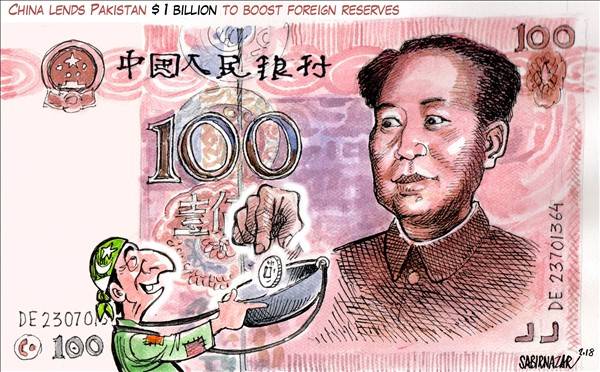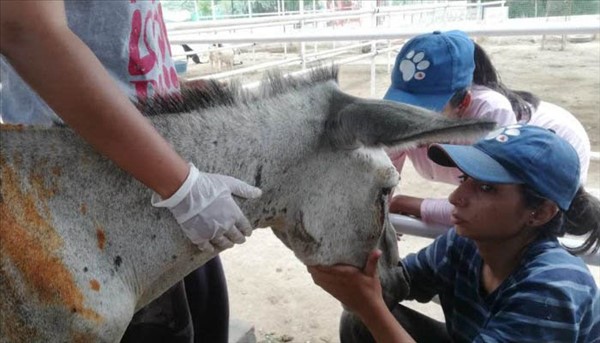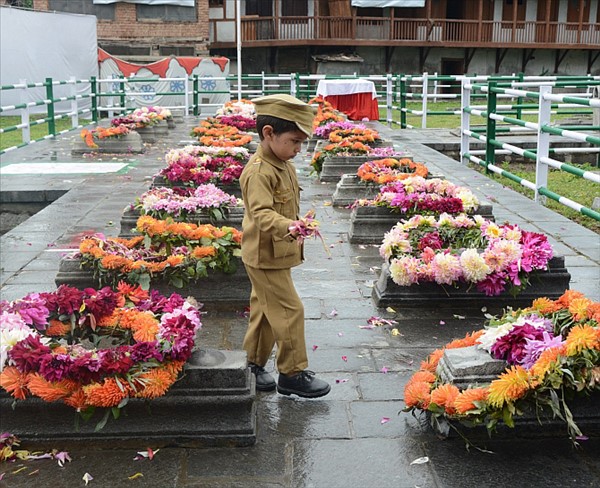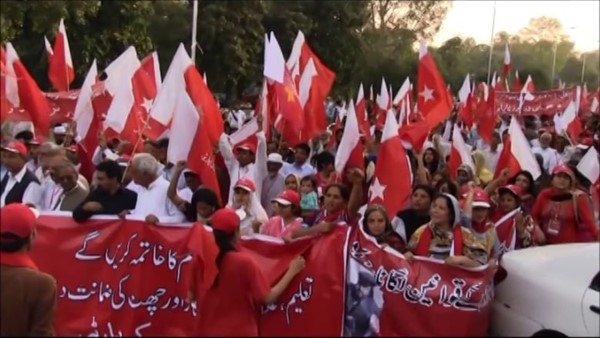
Animal abuse in Naya Pakistan
Madam,
I never thought I would see a day when beating up donkeys became a mode of political expression in Pakistan but here we are.
After Imran Khan’s recent speech, where he labelled people who support the Pakistan Muslim League—Nawaz (PML-N) donkeys, people apparently began to think that actual donkeys were also supporting the party.
Recently, a donkey was beaten to pulp and a car was driven over it. Why? Because, it was connected to the PML-N by supporters of the PTI.

The PML-N’s workers may be donkeys, but the PTI and its supporters have shown that they are worse than animals. How can you be so destructive, so cruel without any real reason? God forbid if these people get election. What will they do to humans that they despise or those who disagree with them? Dark times indeed.
The animal was later rescued by people, so all faith in humanity is not lost. In a post online, the people who rescued the animal wrote, “The wound near his rear was an old abscess which burst when he collapsed. His nostrils were ripped apart and his face was bleeding. He is not eating much and his body is still stiff and yet shaking with fear. His wounds have been cleaned and he has been given pain killers. The girls at the shelter are sitting with him, hugging him, crying with him. He winces at any touch because he thinks each one will hurt.”
I am no PML-N supporter but if this is what Naya Pakistan will look like, then I want no part of it.
Sana Ijaz,
Lahore.
Education and election
Madam,
I write to you to seek your support in highlighting education issues, particularly related to girls and marginalised communities. The aim is to raise pertinent questions regarding education issues that can help in sensitising voters on how to effectively generate demand prior to the general elections 2018.
Despite various campaigns run by the civil society in Pakistan, education remains one of the least discussed issues ahead of the upcoming general elections. Whether it is ensuring access to schools for the 22.6 million out-of-school children in Pakistan (53 percent of which are girls) or working to improve educational outcomes (that is, enhanced reading, writing and numeric skills) the political leadership needs to pay urgent attention to the dismal state of Pakistan’s education sector. This clearly goes to highlight the urgent need to make education a mainstream political agenda so that the country’s political leadership feels obligated to improve its performance in this regard and provide the country’s overwhelming population of out-of-school children with their constitutional right to education.
As elections are only a week away, all political parties are busy with election campaigns and outlining detailed agendas and commitments. Once again, the promises being made are focused on conventional themes such as infrastructural development and job creation. While these are important in their own right, a country cannot hope to prosper when a significant number of its population is deprived of free and safe quality education. We must collectively demand access to quality education for our children and hold our elected representatives accountable on the commitments made in this regard.
Media can play a key and strategic role in sensitising the voter to make informed choices and hold political parties accountable to the tall promises made before the elections. Media can also help educate the voter and urge every Pakistani to question the vision (vis-à-vis education) of the political representatives who come to their areas asking for votes and demand a road map to ensure at least 12 years of education for our children.
Afshar Iqbal,
Islamabad.
Martyr’s Day
Madam,
On July 13, 1931, Dogra troops shot dead 22 Kashmiris in front of Srinagar Central Jail. Since that ominous day, Kashmiris have organised peaceful protests, seminars and conferences throughout the world to observe Martyr’s Day to reaffirm their resolve to continue seeking self-determination and pay homage to the 100,000 innocent men, women and children killed in the past 29 years. The Kashmiri people’s resolve and continued commitment to peaceful protest is based on the on-going massive violations of their human rights and the Indian Government’s atrocious dismissal of their aspirations for self-determination. Amnesty International report for India (2017-2018) says, “Impunity for human rights abuses (in Jammu and Kashmir) persisted. Security forces continued to use inherently inaccurate pellet-firing shotguns during protests, blinding and injuring several people. Authorities frequently shut down internet services, citing public order concerns.”

The recent report issued by the United Nations on June 14, 2018 on the situation in Kashmir, is congratulatory. The report underscored that “Impunity for human rights violations and lack of access to justice are key human rights challenges in the state of Jammu and Kashmir.” It further said, “Impunity for enforced or involuntary disappearances in Kashmir continues as there has been little movement towards credibly investigating complaints including into alleged sites of mass graves in the Kashmir Valley and Jammu region.”
The people of Kashmir have little faith in or respect for the so-called Indian democracy, and India does not know how to earn it. It’s solution is to clamp down harder, adding to the pain and resentment.
The desire for self-determination is the one very big “element” India should be concerned about, yet continues to pretend to the world that it does not exist. But this decades-old movement in Kashmir will not simply die out. Even the latest United Nations report recommends to the government of India to, “Fully respect the right of self-determination of the people of Kashmir as protected under international law.”
I appeal to world powers to recognise the long-standing wishes and aspirations of the Kashmiri people as they observe Martyrs Day. We hope that the world will realise that what is at stake in the dispute is not only the survival of the people of Kashmir but also the peace and stability in the region of South Asia.
Muhammad Idrees,
Islamabad.
The change we need
Madam,
Recently I saw an article that suggested that Awami Worker’s Party (AWP) “can bring real change.” I was quit amused and wanted to ask the author whether the Left in Pakistan exists in any meaningful sense.
It is a fact that progressives have made great sacrifices for the working people in our country. They gave them the power to unionise through which they could resist the oppression they were enduring at the hands of rich and powerful businessmen and landlords. They also gave our smaller provinces the authority to demand greater share from the central government, in order to end the hegemony enjoyed by Punjab in the country. I salute and admire their great sacrifice.

The AWP was formed to improve the lives of the working class and to fight for social justice, but in reality, these concepts are mere fantasies. In the end the AWP appears shaky and their interests seem bourgeois, as most of its leaders enjoy luxurious lifestyles. They would rather visit a foreign country, than explore their own nation, yet they also oppose imperialism. How can that be possible?
They seem confused and fractured as a group and need comprehensive planning to return to the political fold. There are many voices and groups crying out for social justice, yet they are not under one banner.
In order for them to be truly effective, they have to unite, form a proper strategy to fight the influence of the centre, centre-right parties currently ruling the political landscape and get back to the grassroots by mingling and understanding their constituents, before expecting them to vote for the Left. .
In Pakistan, the so called Left has been hi-jacked by capitalists and elitists and it is time for us to acknowledge that the Left needs a reformation itself, before it can lead a revolution in the country.
Malika Khan,
Via email.

